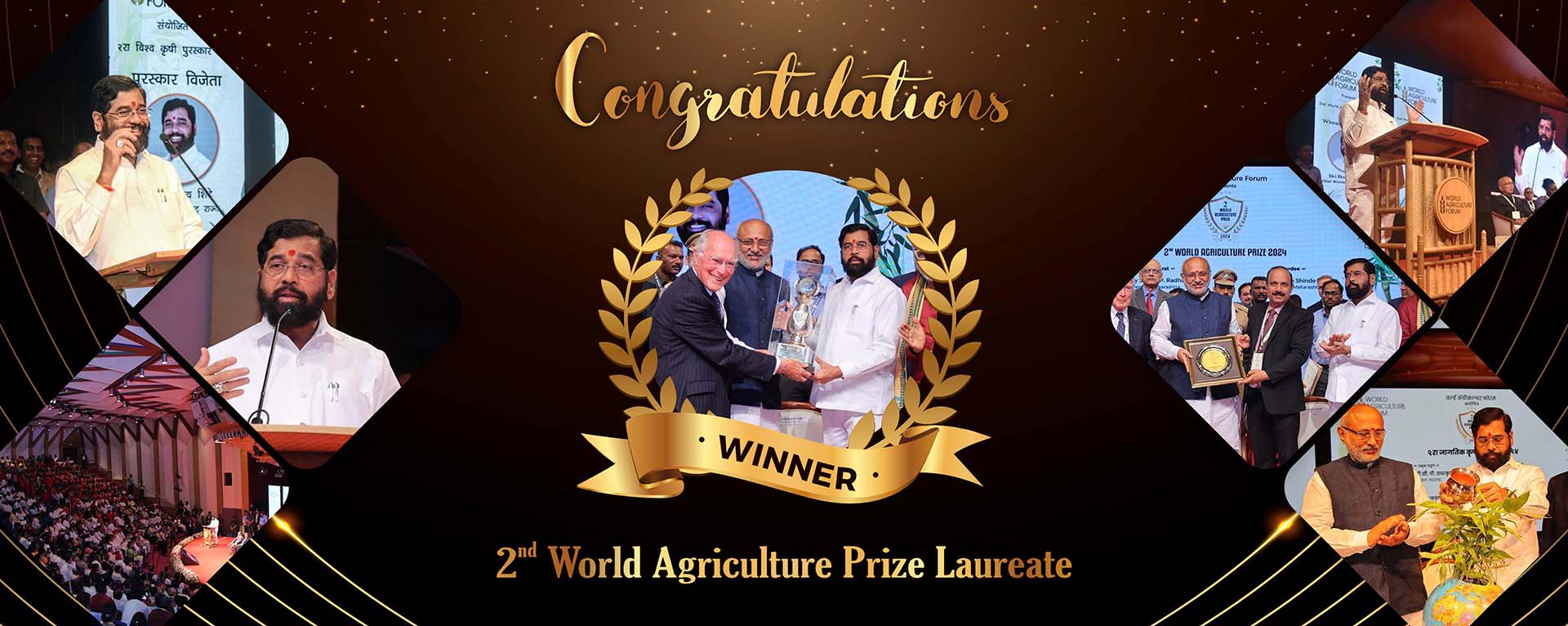
Agriculture has been the foremost engagement of human beings since their existence and will continue to be imperative given the fact that food is necessary for survival. The shift in lifestyle of humans from their nomadic way of life to the settled way of life has become possible due to development and adoption of early agriculture practices. In this journey of transformation from famine to food sufficiency, certain individuals and institutions played critical roles. Still there is a long way to go in making the planet free from hunger and malnutrition. Developing and underdeveloped nations in order to boost food production, need cooperation, collaboration and learning of global experiences. There are individuals and institutions, governments and corporates, and scientists and policy makers, who have played transformational roles in making the planet food and nutrition secure through policies, technologies, business and development interventions. Such outstanding contributors and role models need to be recognised and felicitated at the global level.
Still there is a long way to go in making the planet free from hunger and malnutrition. Developing and underdeveloped nations in order to boost food production, need cooperation, collaboration and learning of global experiences. There are individuals and institutions, governments and corporates, and scientists and policy makers, who have played transformational roles in making the planet food and nutrition secure through policies, technologies, business and development interventions. Such outstanding contributors and role models need to be recognised and felicitated at the global level.
India has come a long way from the pre-Green Revolution days of ‘ship to mouth’ to a situation now, where self- sufficiency has been achieved in almost all areas of agriculture production. Over the years, India has taken leadership position in the world agriculture and is now is in a position to benefit the developing world with its experiences and diversity of learning through Green Revolution in food production, White Revolution in milk, Blue Revolution in fisheries and Pink Revolution in horticulture production. With this vision to recognize the individuals, who have served the humanity through agriculture, Indian Council of Food and Agriculture instituted the World Agriculture Prize in 2018 to be presented to an individual or institution or the Government, who played seminal role in transforming agriculture and saving the humanity from the curse of hunger. The World Agriculture Prize has now been taken over by the World Agriculture Forum. A high level global selection committee is constituted to decide the names of World Agriculture Prize Laureate. The 1st World Agriculture Prize was presented to the Pioneer of India’s Green Revolution, Prof. MS Swaminathan on Oct 26, 2018 in New Delhi by the Hon’ble Vice President of India.
The 2nd World Agriculture Prize was presented on September 18th, 2024, at Mumbai, India. The award presentation was preceded by a special session, named “Norman Borlaug Global Dialogue on Climate Change and Food Security”. This award as well as global dialogue on climate change and food security provided a unique platform for global leaders to discuss the future agenda and the advances made in agriculture at the global level. This also opened more avenues for the key stakeholders to learn from experiences and success stories of the developing and developed nations and replicate them to deal with the challenge of climate extremes and ensure sustainable global food and nutrition security.
Individuals, such as Dr. Norman Borlaug, Prof. MS Swaminathan, Dr. V Kurien, Prof. Yuan Longping, President Lula, President Obama, just to name a few, have made historic contributions in the 20th century. And so have the institutions such as FAO, CIMMYT, UNDP, ICAR, IRRI, IFPRI, ICRISAT, AfDB, ADB, AGRA, NEPAD, IFDB, CropLife, IFA etc and corporate such as John Deere, Monsanto, Mosaic, Mahyco Seeds, Bayer, Syngenta, Corteva, Yara, OCP, IFFCO, Cargill to name just a few. Every major country has some learnings and success stories or the other to share for global good. India, for example, has the learning of Green Revolution in food production, White Revolution in milk, and Blue Revolution in fisheries production to share with the world. China has hybrid rice story to share, Netherlands the advances in horticulture, US and Brazil the mechanised farming, Taiwan and Japan the digital technologies, and so are the other countries.
With this vision to recognize the individuals, who have served the humanity through agriculture, Indian Chamber of Food and Agriculture instituted the World Agriculture Prize in 2018 to be presented to an individual or institution or the Government, who played seminal role in transforming agriculture and saving the humanity from the curse of hunger. The World Agriculture Prize has now been taken over by the World Agriculture Forum. Therefore, the 2nd World Ag Prize onwards will be presented by the newly created World Agriculture Forum. A high level global selection committee is constituted to decide the names of the World Agriculture Prize Laureate. The 1st World Agriculture Prize was presented to the Pioneer of India’s Green Revolution, Prof. MS Swaminathan on Oct 26, 2018 in New Delhi by the Hon’ble Vice President of India.
The award presentation was preceded by a special session, named “Norman Borlaug Global Dialogue on Climate Change and Food Security." This award as well as global dialogue on climate change and food security provided the unique platform for global leaders to discuss the future agenda and the advances made in agriculture at the global level. This also opened more avenues for the key stakeholders to learn from the experiences and success stories of the developing and developed nations and replicate them to deal with the challenge of climate extremes and ensure sustainable global food and nutrition security.
The World Agriculture Prize recognizes the individuals and institutions with exceptionally significant and globally impacting achievements in the field of agriculture, including but not limited to breeding, food production; plant and animal science, food science and technology; nutrition; rural development; water and the environment; natural resource conservation; bio based products, poverty elimination; finance, investments or budgetary allocations; policy, industry and agribusiness, programs or economic interventions, and public advocacy.
The World Agriculture Prize honors individuals and institutions whose achievements have made a profound global impact in agriculture. This recognition spans diverse fields such as plant and animal breeding, food production, science and technology, nutrition, rural development, water management, environmental conservation, bio-based innovations, and social organization aimed at poverty reduction. It also acknowledges contributions in areas like finance, investment strategies, policy, industry and agribusiness, programs or economic interventions, and public advocacy.
For the application to be considered, nominations with all seconding and supporting documents must be submitted by the due date of the year, as mentioned. Incomplete nominations will not be considered. After reviewing the nominations for appropriateness and completeness, they will be forwarded to the Selection Committee. The Selection Committee then reviews the nominations and recommends the recipient and first alternate it deems most worthy for the award. The Selection Committee is composed of a panel of distinguished individuals, who are knowledgeable about various aspects of plant science, agricultural production, trade, technology, business, policy and economic scenario, nutrition, food processing, water and the environment.











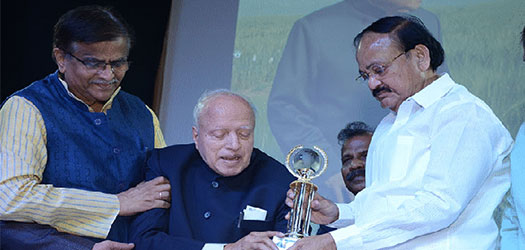
Presentation of 1st World Agriculture Prize to the Father of Green Revolution in India, Prof. MS Swaminathan presented by Hon’ble Vice President of India, Sh. M. Venkaiah Naidu
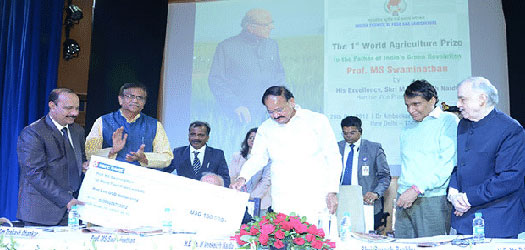
A cheque $ 100,000 presented to Prof. MS Swaminathan as a part of World Agriculture Prize by Shri Suresh Prabhu, Hon’ble Commerce Minister of India.
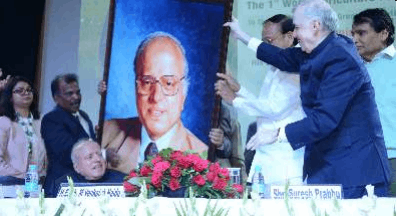
A token of gesture from ICFA to Prof. MS Swaminathan, a hand made portrait of him being presented by Hon’ble Governor of Kerala.
The nominee must establish exceptionally signicant and globally impacting achievements through policy, technology, development or business, which resulted in a demonstrable improvement in agriculture system or increase in the quantity, quality or availability of food for a substantial number of people or improvement in quality of life of farmers or rural masses. The impact of this achievements must be measurable, quantiable, or otherwise demonstrated either in terms of increased production or productivity, reduced cost of cultivation, improved return on investments, reduced poverty, hunger or suffering; or enhanced health, nutrition, quality of life and well-being. While evaluating signicance of the individual achievements as well as complexity of the problem solved will be the important aspects to be considered. The person may be nationally and internationally recognized for the transformational change happened with the interventions or work achievements. The prize will be awarded to one person, one institution or one Government only and the nominee must be in good state of health to attend the award ceremony to receive the prize personally.
More Info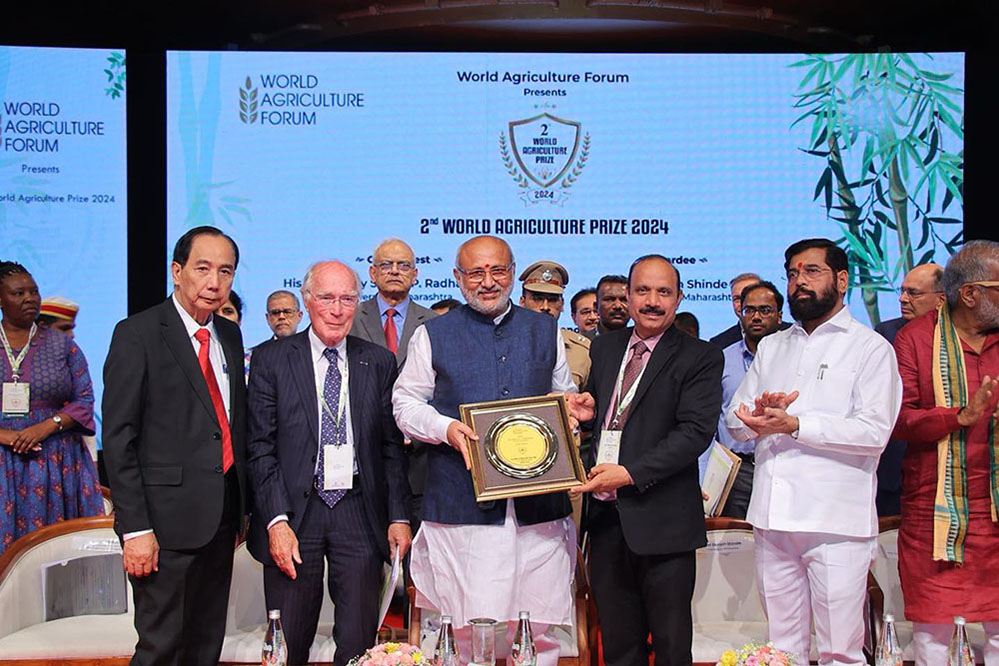
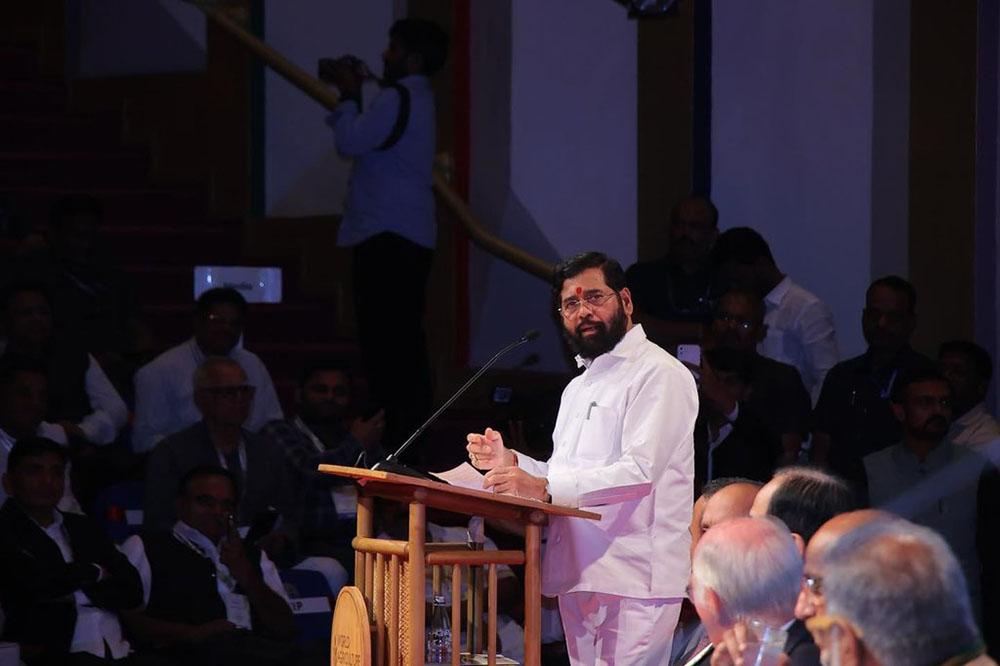
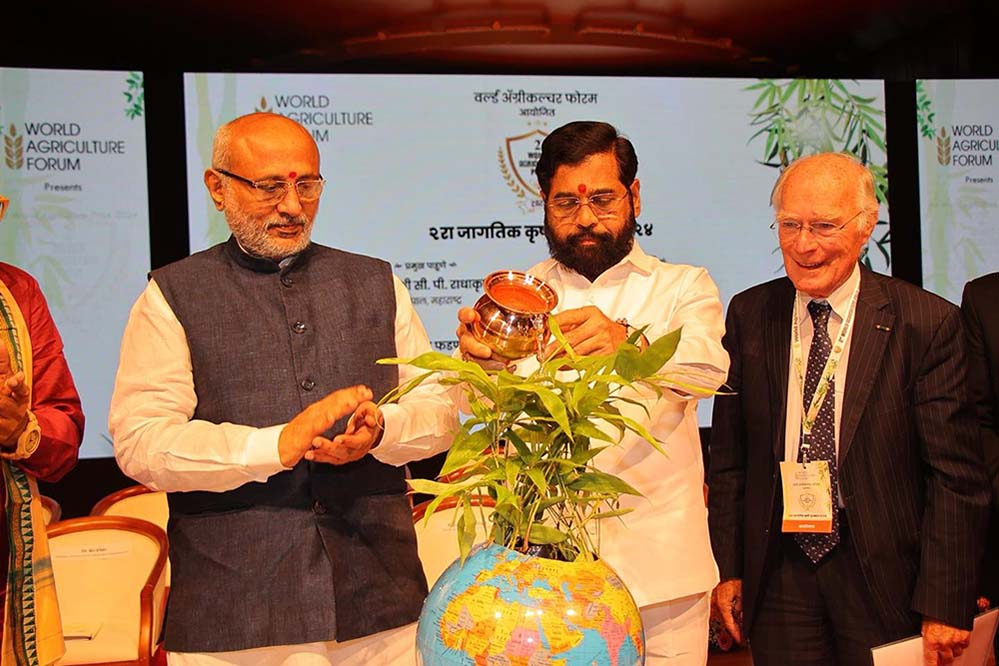
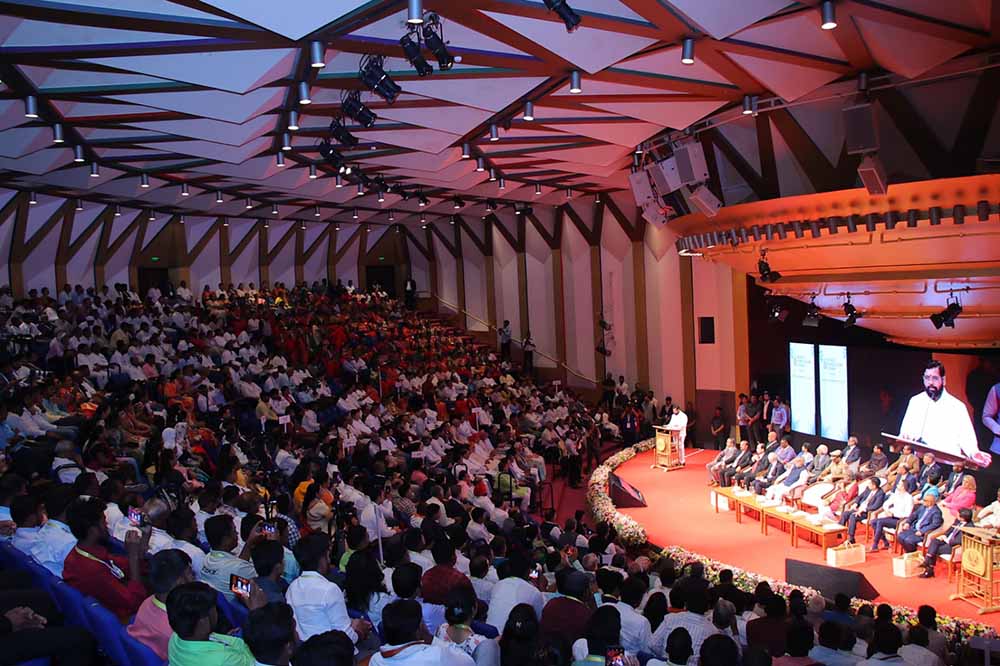
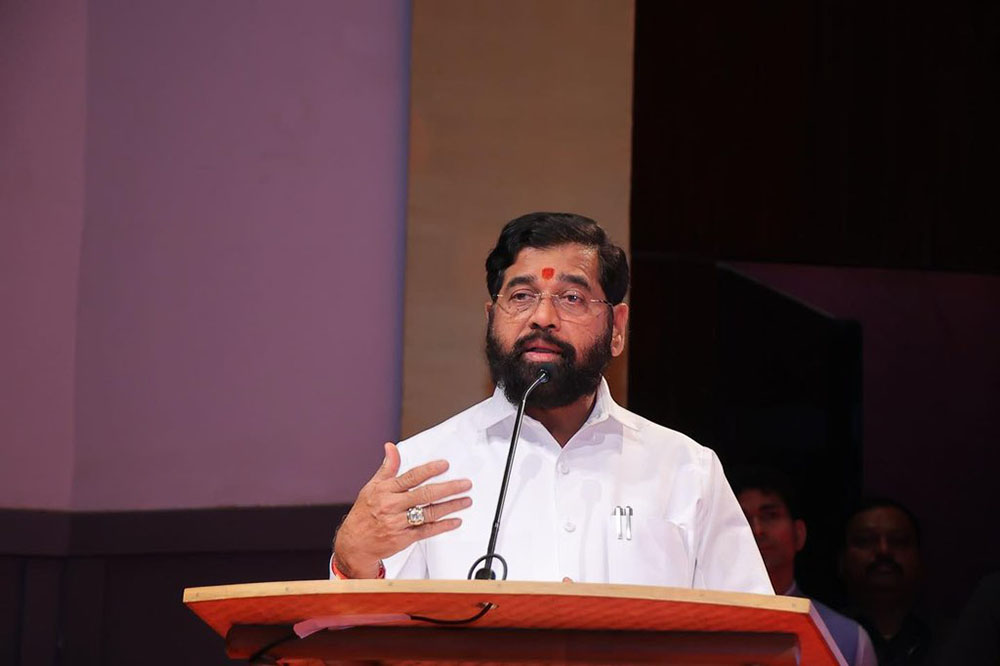
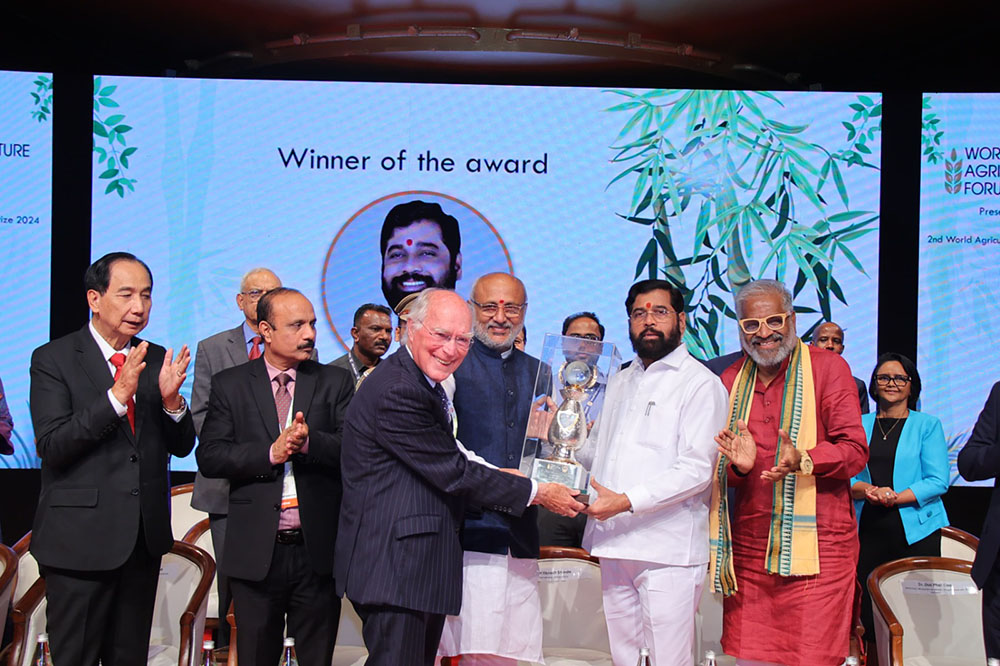
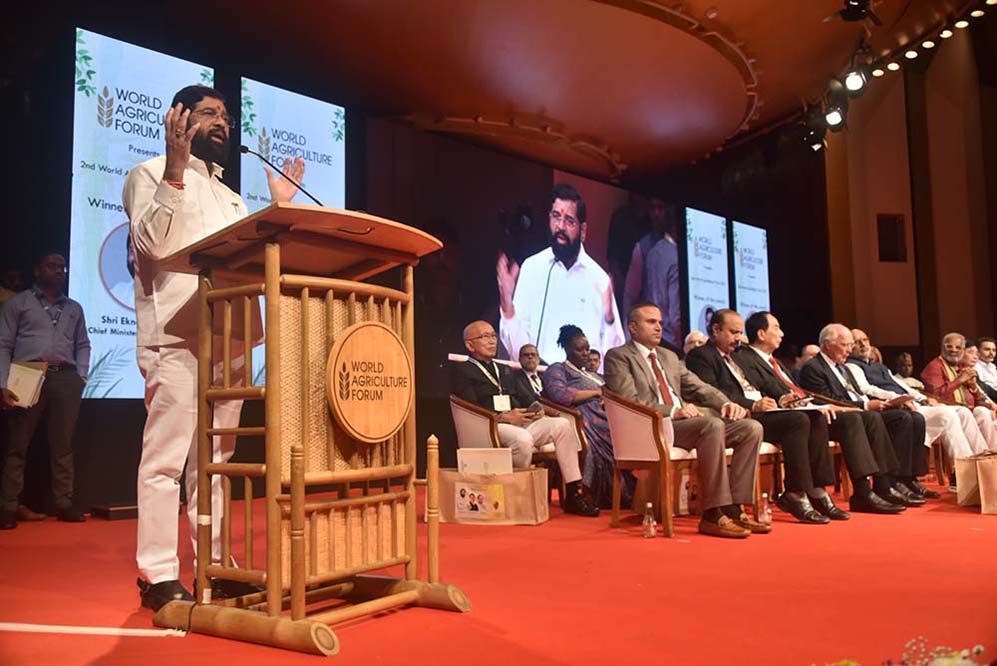
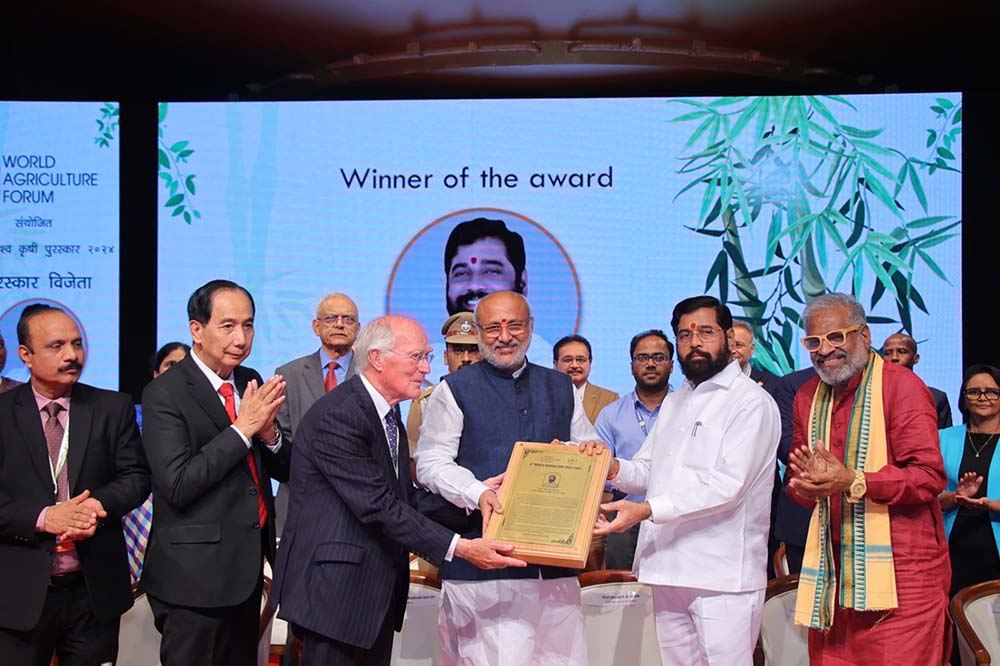
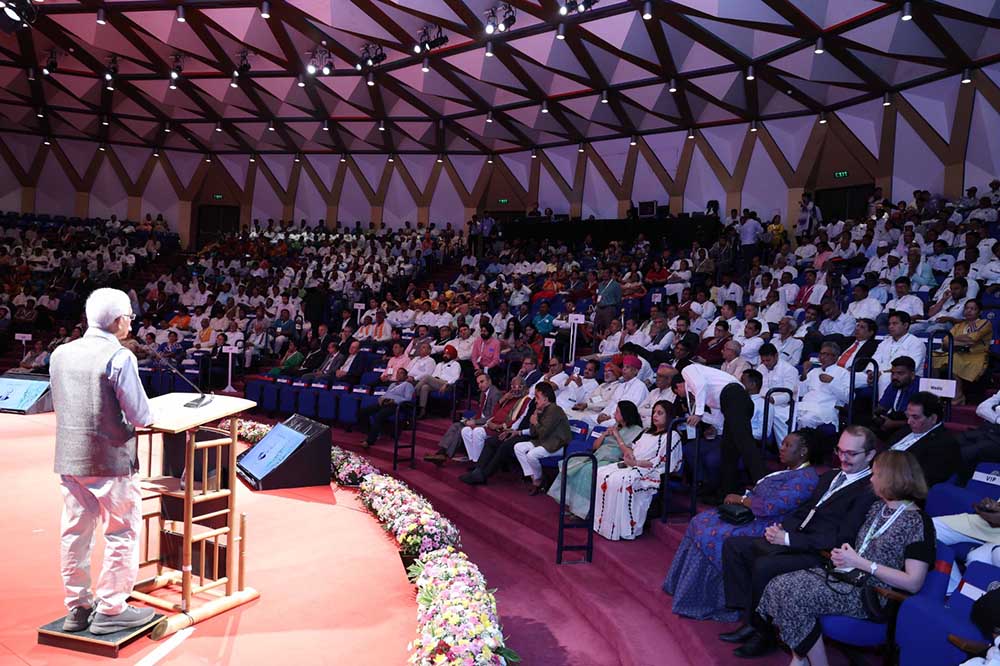
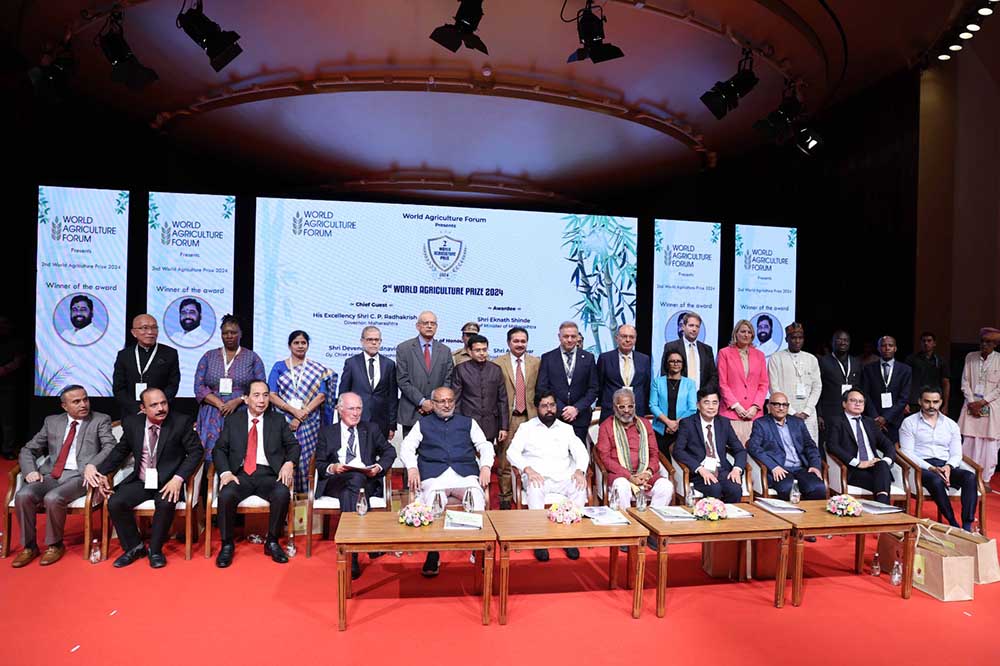
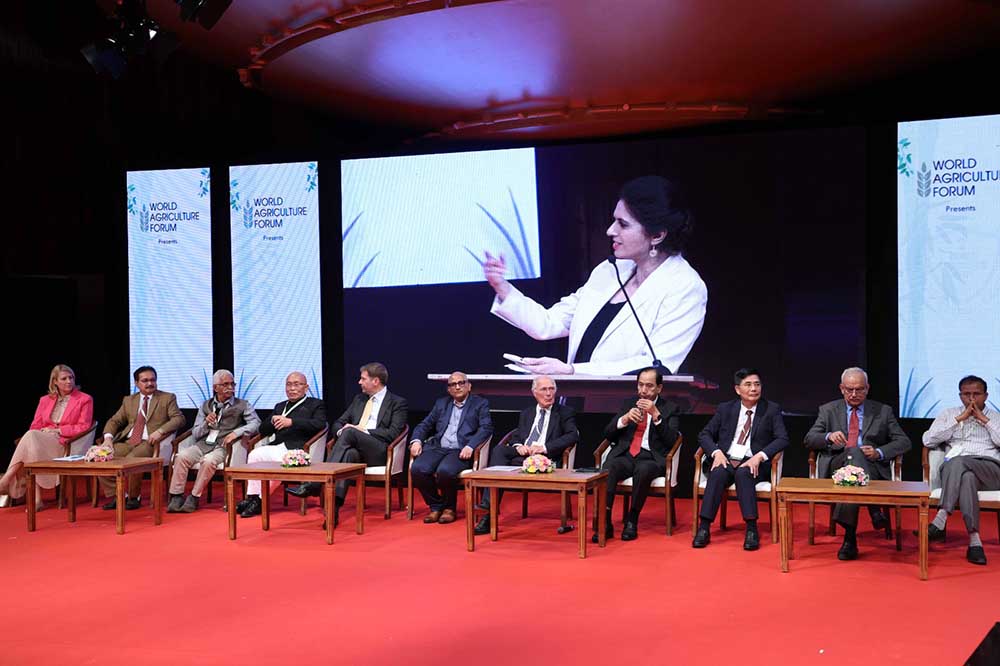
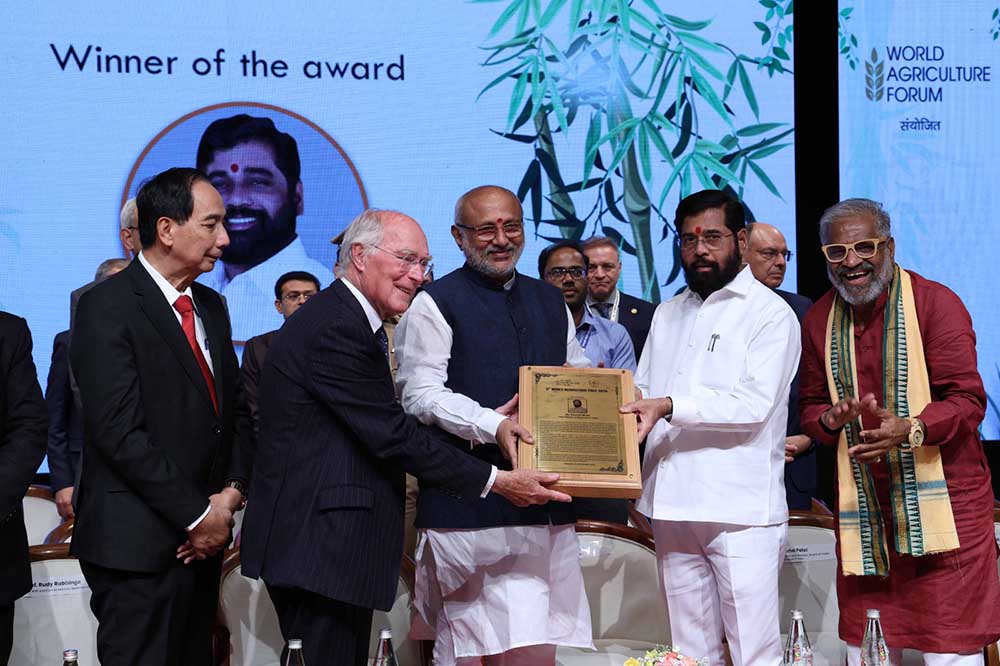
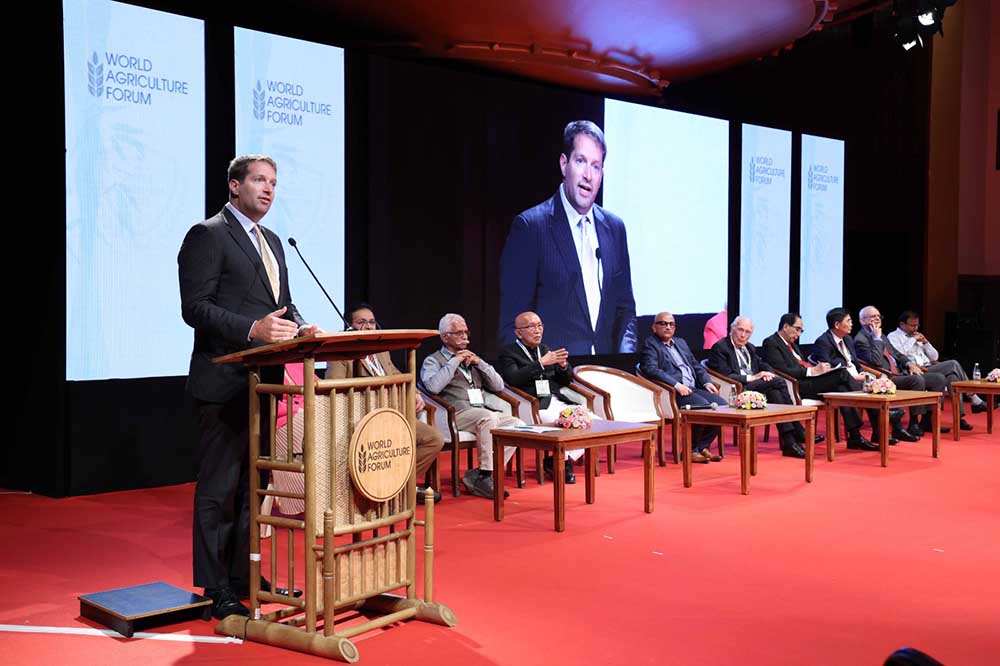
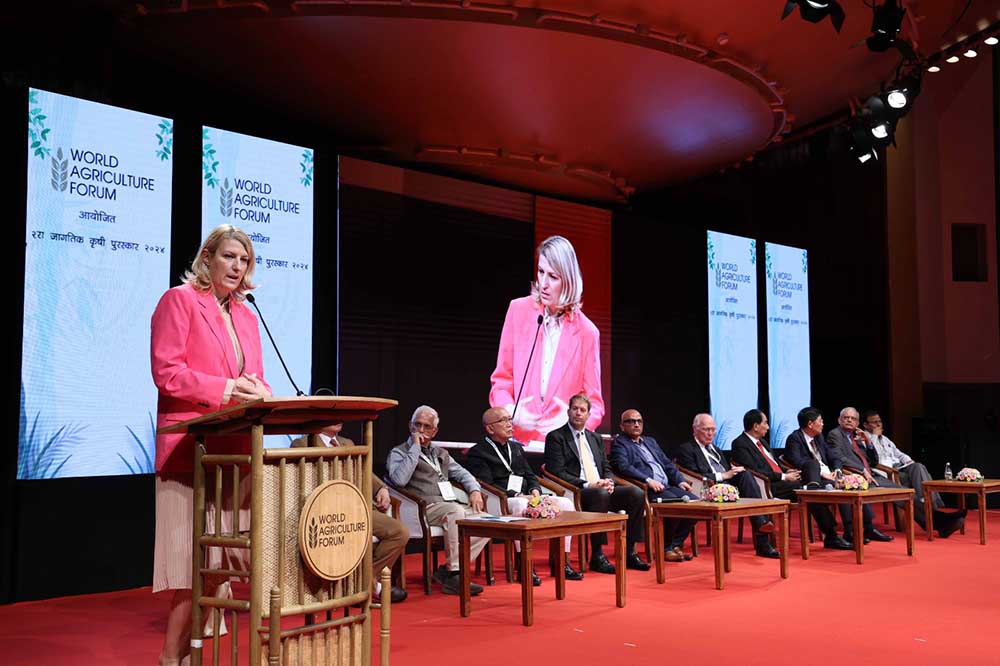
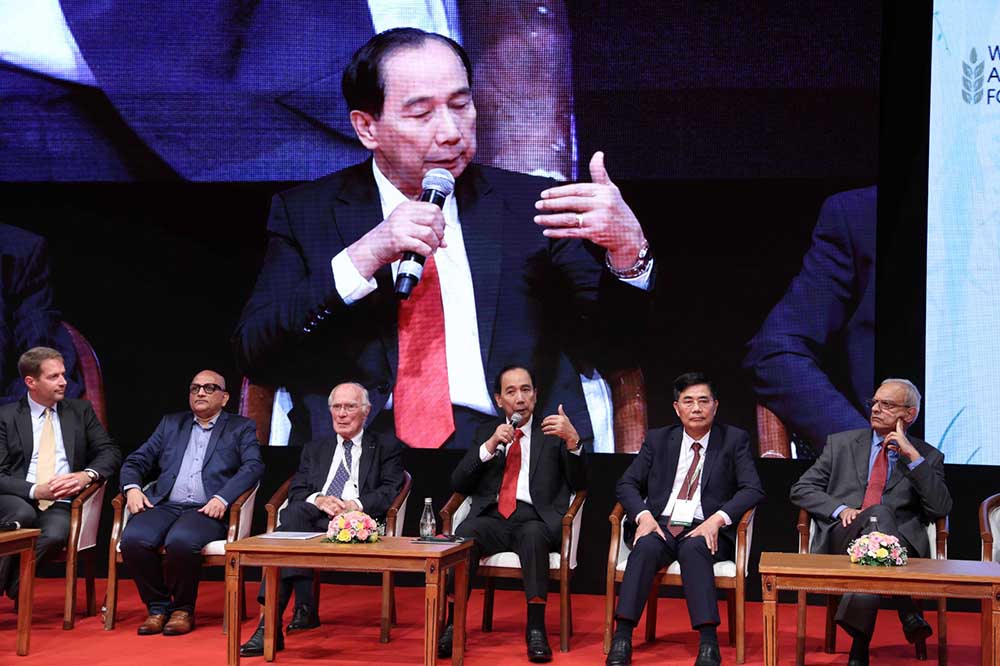
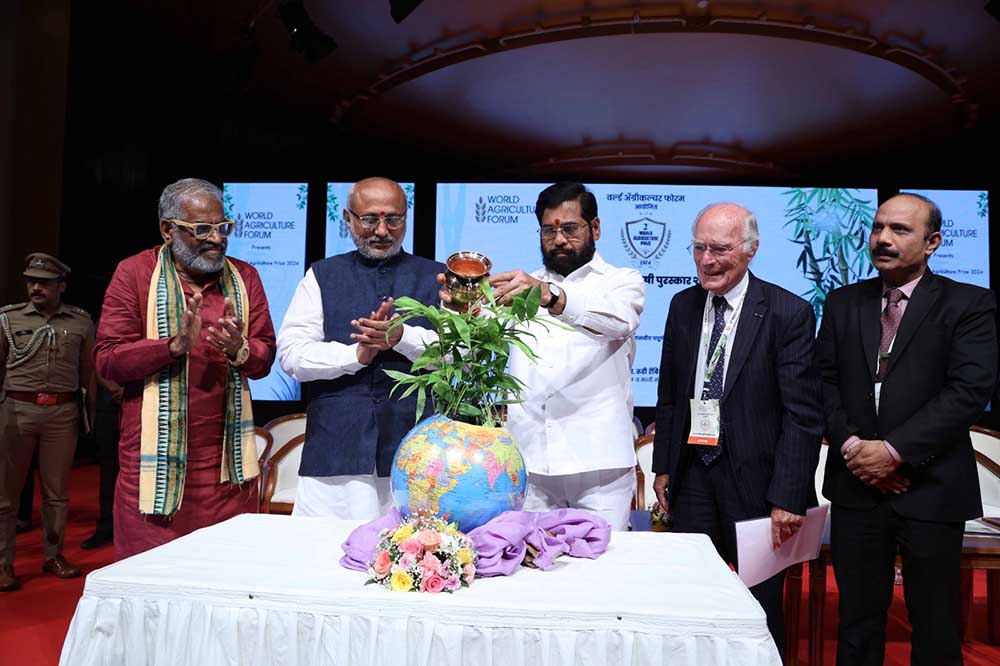
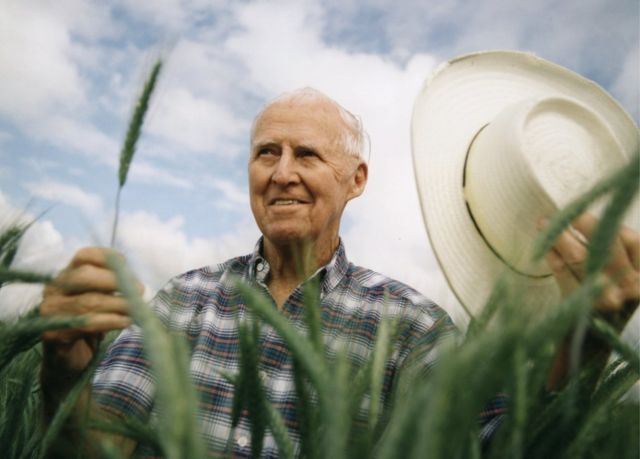
The award ceremony is preceded by a special session, named “Norman Borlaug Global Dialogue on Climate Change and Food Security”, as part of the World Agriculture Prize. The special session on Climate change and food security has been incepted with a thought to invite the laureates of food and agriculture world to participate in the World Agriculture Prize event and deliberate on this burning issue to come out with a blue print for climate resilient agriculture in a sustainable manner to safeguard the interests of our future generations.
Agriculture has been the foremost engagement of human beings since their existence and will continue to be imperative given the fact that food is necessary for survival. The shift in lifestyle of humans from their nomadic way of life to the settled way of life has become possible due to development and adoption of early agriculture practices. In this journey of transformation from famine to food sufficiency, certain individuals and institutions played critical roles. Still there is a long way to go in making the planet free from hunger and malnutrition. Developing and underdeveloped nations in order to boost food production, need cooperation, collaboration and learning of global experiences.
India has come a long way from the pre-Green Revolution days of ‘ship to mouth’ to a situation now, where selfsufficiency has been achieved in almost all areas of agriculture production. Over the years, India has taken leadership position in the world agriculture and is now is in a position to benefit the developing world with its experiences and diversity of learning through Green Revolution in food production, White Revolution in milk production and Pink Revolution in horticulture production.
More Info